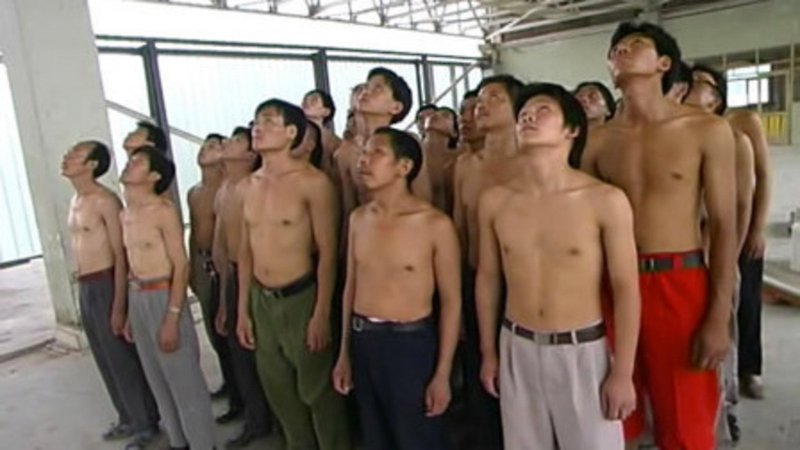
Screened as part of NZIFF 2002
Dance with Farm Workers 2002
He min gong tiao wu
"One of the pioneers of ‘underground’ cinema in China, Wu divides his time between documentary film-making and theatre/dance work. This DV tape combines his two interests: it documents the rehearsals for and staging of a performance piece in a condemned building (a former textile mill) in Beijing. Wu and his three co-conspirators recruited 30 day-labourers to ‘dance’ alongside a few professionals in a piece based on the movements of factory and building-site work. The show was clearly terrific, but the joy here is watching the young and middle-aged men from rural Sichuan overcome their understandable suspicions as they rise to the challenge of performing in public with wholehearted delight." — Tony Rayns, Sight & Sound
A documentary about a very unconventional performance: the project involved not only actors and dancers, but also 30 Beijing farm workers from the poorer regions of Sichuan province. In addition, both the rehearsals and the performance took place in the production hall of a former textile factory that would soon be torn down as part of Beijing’s rapid modernisation. The superbly fit farm labourers, who came to the city when they lost hope that conditions would improve at home, are the pillars supporting this modernisation – and this performance. The 30 farm labourers working on building sites in Beijing were initially motivated by the 30 yen a day pay. It was only some time later that they discovered that they, the lowest of the low, would be standing centre stage.
My aim as a documentary filmmaker was to record the preparations for the performance. The film was to focus on people who are not normally at the centre of things, people who are needed to modernise the city of Beijing and then quickly forgotten again. This performance will do as little to change these people’s lives and fates as the documentary can show the full complexity of their lives. The film is like a plant that flowers for a while in a particular space. Today the curtain has long fallen. The production hall has been converted into an amusement park for Beijing’s modern rich inhabitants. The farm labourers have returned to the building sites. My only consolation is that I will continue to follow them with my camera, documenting their lives, their work, their hopes and their fates. — Wu Wenguang